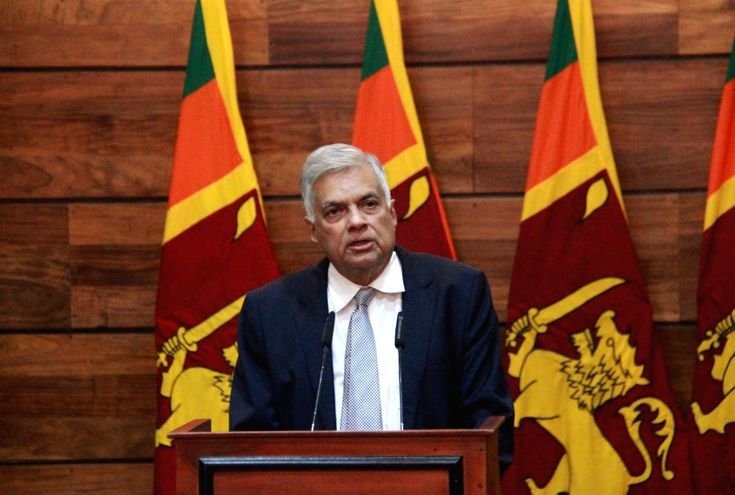
President Ranil Wickremesinghe on Educational Reforms and Welfare Programs
President Ranil Wickremesinghe has emphasized the critical role of all provincial governors in ensuring the effective implementation of government welfare programs and the timely delivery of their benefits to the people. During a discussion with Provincial Governors at the Presidential Secretariat on the 12th, the President underscored the importance of active participation in these initiatives.
The meeting addressed the shortage of teachers at the provincial level and discussed strategies to enhance the efficiency of the ‘Urumaya’ freehold land distribution program. President Wickremesinghe highlighted the potential for improving the ‘Urumaya’ program by introducing mobile services and delegating authority beyond the Grama Niladhari level. He reminded divisional secretaries of their duty to engage the public and ensure the benefits of this program reach them.
Minister of Education Dr. Susil Premjayantha reaffirmed the government’s commitment to resolving the teacher shortage at the provincial level promptly. He announced that 2,500 new teacher appointments for national schools are scheduled for July 3rd. These appointments include 2,100 teachers for subjects like Chemistry, Physics, Biology, Mathematics, Technology, and Foreign Languages, along with 500 teachers based on the results of the 2021 English Medium Advanced Diploma Examination. These new appointments are expected to significantly reduce teacher vacancies in national schools.
To further address the shortage of English medium teachers, the minister invited retired English medium teachers to apply for contract-based positions. This initiative aims to leverage the experience of retired educators to fill gaps in the current teaching workforce.
The meeting also focused on expediting the Presidential Scholarship Program, which supports children from low-income families and is funded by the Presidential Fund. Under this program, 100,000 scholarships will be distributed to students from grades one to eleven, with 16,152 scholarships allocated for the Western Province, 8,636 for the Northern Province, and 10,000 each for the remaining provinces. Each scholarship provides Rs. 3,000 per month for a period of 12 months. Additionally, a 24-month scholarship program for children studying for the G.E.C. Advanced Level has concluded, providing scholarships of Rs. 6,000 per month.
The award ceremony for 2,000 students in the Colombo district is scheduled for June 19 at Temple Trees, under the patronage of the President. The scholarship program will operate at the district level, with scholarship amounts credited to students’ accounts along with any arrears on the day of the award. Subsequently, the scholarship funds will be deposited directly into students’ accounts during the first week of each month through an online process.
A historic scholarship program has also been launched for students studying in Piriven and Silmata educational institutes, including monks, Silamathas, and lay students. Scholarships will be awarded immediately after the application process, which has already commenced for eligible students. An annual expenditure of Rs. 5.1 billion has been allocated for these scholarship awards, funded entirely by the President’s Fund.
The discussion also highlighted the governors’ responsibility in ensuring the success of these scholarship programs at the district level. Prime Minister Dinesh Gunawardena, Senior Advisor to the President on National Security and Chief of Staff Sagala Ratnayaka, Secretary to the President Saman Ekanayake, along with secretaries from relevant ministries and heads of institutions, were present at the meeting.
President Wickremesinghe’s directives reflect his administration’s focus on enhancing educational infrastructure and support for disadvantaged students. By addressing the teacher shortage and ensuring efficient distribution of land deeds and scholarships, the government aims to improve educational outcomes and provide greater opportunities for all students, particularly those from low-income families. The commitment to these programs demonstrates the administration’s dedication to building a more equitable and supportive educational environment.
The involvement of provincial governors is crucial in this effort, as they are positioned to oversee the implementation of these programs and ensure they reach the intended beneficiaries. By delegating authority and introducing mobile services, the administration seeks to streamline processes and make government services more accessible to the public. This approach is expected to enhance the efficiency and effectiveness of government initiatives, ultimately leading to better outcomes for the people.
The focus on education, particularly the recruitment of new teachers and the provision of scholarships, underscores the government’s recognition of education as a vital component of national development. Ensuring that every child has access to quality education and the necessary resources to succeed is a priority that aligns with broader goals of economic and social progress.
The upcoming award ceremony and the ongoing efforts to recruit teachers and distribute scholarships reflect a proactive approach to addressing current challenges in the education sector. The government’s strategies aim to create a supportive and conducive learning environment for students, which is essential for their academic success and future prospects.
In summary, President Ranil Wickremesinghe’s meeting with Provincial Governors focused on the efficient implementation of welfare programs, addressing teacher shortages, and enhancing the effectiveness of the ‘Urumaya’ land distribution program. The commitment to these initiatives highlights the administration’s dedication to improving education and providing equitable opportunities for all students, particularly those from low-income families. Through these efforts, the government aims to foster a more inclusive and supportive educational environment, contributing to the overall development and prosperity of the nation.




Leave A Comment